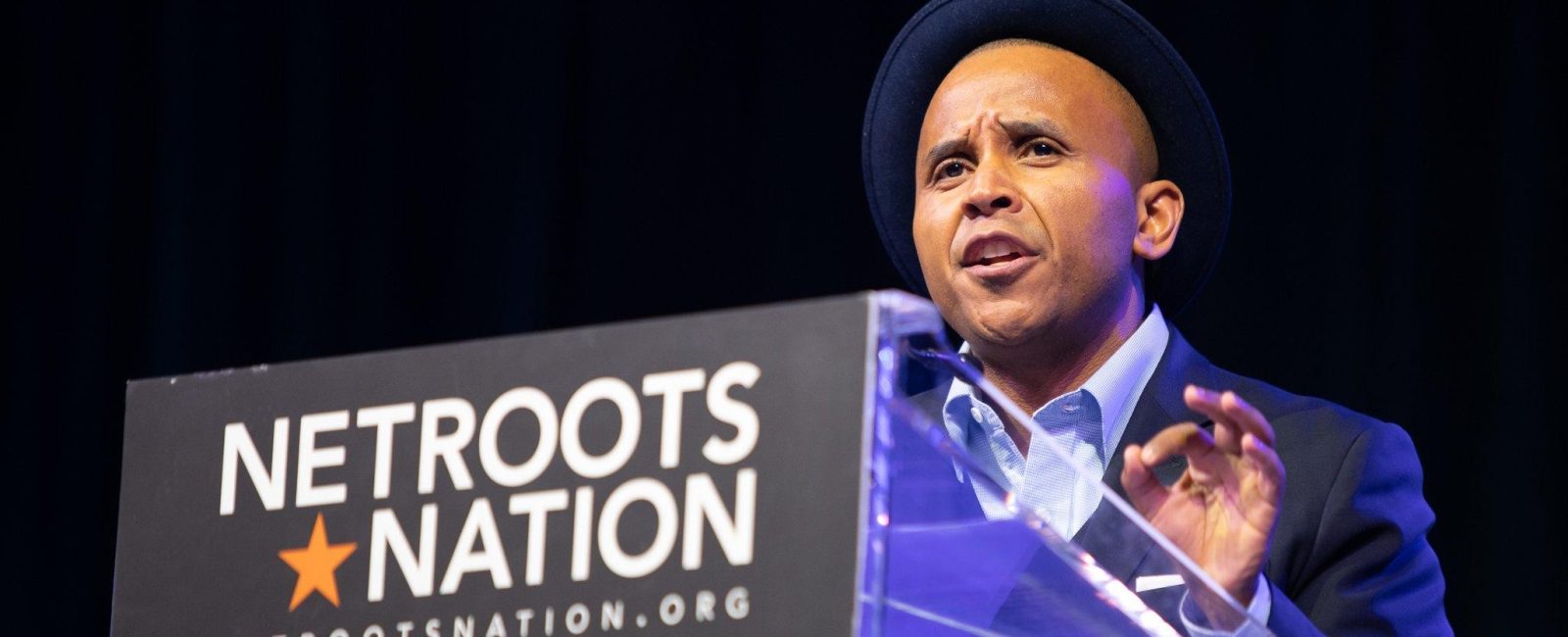
Corporate payment processors PayPal, Mastercard, and Visa stopped accepting payments from white nationalist groups within days after the August 2017 Charlottesville rally. The financial isolation didn’t happen spontaneously. Rashad Robinson and his team had spent months before the violence conducting private negotiations with credit card executives, preparing detailed policy proposals, and building internal coalitions within the companies.
PayPal banned at least 34 organizations, including Richard Spencer’s National Policy Institute and Jason Kessler’s Unity and Security for America, after receiving specific evidence of policy violations. Mastercard executives weren’t surprised by the pressure campaign—they had been in conversations with Robinson since February of that year. The Charlottesville campaign revealed Robinson’s systematic approach: four-phase methodology that begins with private relationship-building rather than public confrontation.
Robinson now operates through Rashad Robinson Advisors, his New York-based advisory firm, after transforming Color Of Change from a startup into a force with over seven million members during his tenure from 2011 to 2024. His current work focuses on narrative infrastructure, cultural change strategies, and corporate accountability across multiple sectors simultaneously.
Infrastructure Over Events
Where many advocacy efforts focus on mobilizing people around specific issues, Robinson’s approach prioritizes building systems that can channel energy repeatedly over time. The distinction addresses what Robinson identifies as the fundamental weakness of activism. Energy dissipates when media attention shifts elsewhere.
Robinson and his team’s corporate accountability work typically involves months of private negotiations before any public pressure begins. Companies receive detailed policy proposals, visual mockups of potential campaigns, and strategic timelines to guide their decision-making. His methodology targets underlying incentive structures rather than individual decisions, recognizing that sustainable change requires altering the systems that produce problematic outcomes.
The infrastructure-first model becomes clear when examining Robinson’s campaign against the American Legislative Exchange Council (ALEC). Rather than simply criticizing the organization’s discriminatory voter ID and “Stand Your Ground” laws, Robinson and team spent years building relationships with corporate executives and internal advocates. Over 100 corporations eventually ended their financial support of ALEC, not because of public shaming, but because Robinson made abandoning the relationship organizationally advantageous.
The Black Tech Agenda developed under his leadership shows a similar approach to infrastructure thinking applied to technology policy. Rather than responding to platform policies after implementation, Robinson advocates for proactive engagement with policymakers and platform designers. The agenda addresses algorithmic bias, antitrust policy, and disinformation as interconnected systems requiring coordinated intervention before discriminatory practices become entrenched.
Presence Versus Power
Robinson’s core strategic framework distinguishes between cultural visibility and institutional influence. America can celebrate Black celebrities while systematically excluding Black communities from economic opportunity. Social media engagement can generate millions of views without producing policy changes. Viral hashtags can raise awareness without building the relationships necessary for sustained pressure.
The framework emerged from Robinson’s observations about cultural momentum failing to translate into institutional accountability. His campaigns consistently focus on changing rules rather than winning individual battles. When Robinson and his team helped force over 100 corporations to abandon ALEC, the victory created precedent for future corporate accountability campaigns. When he helped win net neutrality by positioning it as a civil rights issue, the strategy influenced how technology policy gets debated across multiple regulatory contexts.
Robinson served as co-chair of the Aspen Institute’s Commission on Information Disorder, working alongside Katie Couric and Chris Krebs to develop frameworks for addressing misinformation at scale. The commission’s work addressed not just individual instances of false information, but the systemic factors that enable disinformation campaigns to flourish. Robinson’s contribution focused on how existing civil rights enforcement mechanisms could apply to digital platforms.
Corporate Engagement Through Internal Alliances
Robinson’s corporate engagement methodology relies on identifying and empowering internal advocates rather than depending solely on external pressure. His success across multiple industries—including helping drive Bill O’Reilly off Fox News to compelling Facebook to conduct civil rights audits—shows how institutional change requires coordination with employees already arguing for policy changes internally.
This approach recognizes that corporate policy changes require internal champions, not just external pressure. Robinson’s teams conduct extensive research to identify which employees, board members, or executives might support policy changes for strategic or moral reasons. They then provide those internal advocates with data, policy proposals, and strategic frameworks that make supporting civil rights initiatives organizationally beneficial.
“Ninety-five percent of the time, we reach out to them before going public,” Robinson explained. “What often happens at these organizations is that there are people inside who are on our side, that are arguing [our case to their colleagues]. We want to make those people as powerful as possible.”
When corporations resist initial private outreach, Robinson’s teams launch coordinated campaigns involving consumers, employees, and investors. However, public pressure primarily serves to strengthen the position of internal advocates, who can use external demands as justification for policy changes they had already supported.
Strategic Advising and Scalable Impact
Robinson’s transition to independent advisory work through Rashad Robinson Advisors enables him to apply his infrastructure-building approach across multiple sectors simultaneously. Unlike traditional organizational leadership, which focuses resources on single-issue campaigns, strategic advising allows Robinson to influence foundation strategies, corporate policies, and movement infrastructure across various issues.
Robinson serves on the board of the Marguerite Casey Foundation, where his board service shows how senior leaders can maintain influence across multiple organizations while operating with greater flexibility than traditional executive positions allow. Board members can shape organizational strategy without the operational constraints that limit day-to-day executives.
His advisory work targets strategic gaps across sectors. Foundations often fund individual organizations without building coordinated networks. Corporations implement diversity initiatives without addressing underlying systemic barriers. Political campaigns focus on short-term mobilization without building long-term infrastructure. Robinson’s advisory approach helps these groups understand how their work connects to broader systems of power.
Rather than optimizing individual campaigns, his advising helps clients build capacity for sustained influence over time. The methodology Robinson developed during his tenure leading organizational campaigns now informs strategic work across multiple institutions simultaneously. His forthcoming book “One World” by Penguin Random House on power and how to make change will provide additional frameworks for this infrastructure-building approach.
Grassroots Leadership Development
Robinson’s educational initiatives show how infrastructure-building applies to local organizing. His training program for school board participation removes barriers to civic engagement by systematically teaching community members how to navigate complex institutional processes. Participants learn how to introduce resolutions, navigate meeting protocols, and tell personal stories that connect to policy issues.
The program reflects Robinson’s conviction that effective democracy requires accessible pathways for civic engagement. Rather than expecting people to learn complex institutional processes independently, the training creates systematic preparation for meaningful participation. School board meetings can feel exclusionary through specialized language, unclear protocols, and informal power structures that favor insiders.
Robinson’s training addresses these barriers directly. Participants receive background on how meetings work, tools for connecting personal stories to policy issues, and strategies for building coalitions with other community members. The goal involves making outsiders into insiders—but insiders with a purpose that extends beyond individual advancement to systemic change.
“Racial justice is one of our most powerful force multipliers for change because it really motivates people to action,” Robinson noted on an NEA podcast discussing educational advocacy. “It’s also one of our most powerful evaluation tools to help us really understand if what we want, if what we fought for is worthy of the fight.”
The educational work connects to Robinson’s broader infrastructure philosophy. Democracy requires not just voting rights, but the knowledge and relationships necessary for effective civic participation. His training programs build those capabilities systematically rather than expecting them to develop organically.
Movement Leadership Beyond Institutional Boundaries
Robinson’s career trajectory suggests that effective social change requires multiple forms of leadership working simultaneously—from grassroots organizing to institutional change to strategic advising. His transition from organizational leadership to independent advisory work has created opportunities for influence that transcend traditional movement boundaries.
Operating independently allows Robinson and his team to work with clients across sectors without the institutional constraints that limit traditional nonprofit leaders. His advising enables foundation executives to develop more strategic philanthropic approaches, corporate leaders to implement authentic accountability measures, and movement organizations to build more effective infrastructure.
Robinson’s emphasis on infrastructure over events, power over presence, and systems change over symbolic victories has influenced how organizations across sectors approach social change work. His concept of “narrative power” has been adopted by foundations developing coordinated funding strategies and by advocacy organizations building sustained influence campaigns.
As an Atlantic Fellow for Racial Equity (2019), Robinson has continued building networks of leaders working across institutional boundaries to address systemic racism. His independent practice model enables him to maintain these connections while providing strategic guidance to multiple organizations simultaneously.
“When I think about power, I very much think about the ability to change the rules,” Robinson explained at the AFROTECH Conference 2024. “Far too often, we mistake presence for power. Presence is visibility, awareness, retweets, shoutouts from the stage. America can, of course, monetize our culture and hate us at the same time. So we cannot mistake our presence for power, and we have to recognize that unless we have the ability to change the rules, we actually don’t have power.”












